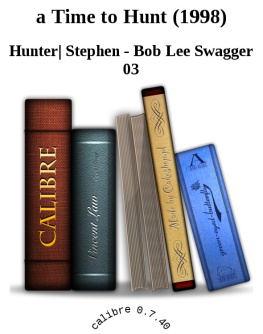Stephen Hunter - Spanish Gambit
Here you can read online Stephen Hunter - Spanish Gambit full text of the book (entire story) in english for free. Download pdf and epub, get meaning, cover and reviews about this ebook. year: 1985, publisher: Crown Publishers, genre: Detective and thriller. Description of the work, (preface) as well as reviews are available. Best literature library LitArk.com created for fans of good reading and offers a wide selection of genres:
Romance novel
Science fiction
Adventure
Detective
Science
History
Home and family
Prose
Art
Politics
Computer
Non-fiction
Religion
Business
Children
Humor
Choose a favorite category and find really read worthwhile books. Enjoy immersion in the world of imagination, feel the emotions of the characters or learn something new for yourself, make an fascinating discovery.
- Book:Spanish Gambit
- Author:
- Publisher:Crown Publishers
- Genre:
- Year:1985
- Rating:3 / 5
- Favourites:Add to favourites
- Your mark:
- 60
- 1
- 2
- 3
- 4
- 5
Spanish Gambit: summary, description and annotation
We offer to read an annotation, description, summary or preface (depends on what the author of the book "Spanish Gambit" wrote himself). If you haven't found the necessary information about the book — write in the comments, we will try to find it.
Spanish Gambit — read online for free the complete book (whole text) full work
Below is the text of the book, divided by pages. System saving the place of the last page read, allows you to conveniently read the book "Spanish Gambit" online for free, without having to search again every time where you left off. Put a bookmark, and you can go to the page where you finished reading at any time.
Font size:
Interval:
Bookmark:
Tapestry Of Spies
Stephen Hunter
*
PROLOGUE:
THE TRIAL OF THE ASSASSIN BENNY LAL
IN THE OLD COURTHOUSE at Moulmein, lower Burma, in February of 1931, caused a bit of a stir in its own day, but its memory has not lingered.
It was a forgotten moment in the history of a vanished empire.
Yet a case could be made that it changed the political history of our century, however secretly, however subtly. Still, in the mind of one man, the event was important for exactly what it was, and not for what it eventually made possible.
He was, on the last day of the trial, the Crown's chief witness, a tall, not unpleasant-looking young officer in the service khaki of the India Imperial Police. It was his duty to put the noose around the neck of Benny Lal.
The blades of the overhead fan moved through the air in a stately whirl, yet without palpable effect. Robert Florry stared at the motion, its easy, hypnotic blur fascinating him.
"Assistant superintendent?"
The magistrate's voice. Florry swallowed awkwardly and, blinking, embarrassed, redirected his vision toward the bench. He hoped his discomfort did not show, knowing of course that it did. He swallowed again. It had taken such a long time for this moment to arrive, but now it rushed at him with the power of the undeniable future.
"Assistant superintendent?"
Florry attempted a wretched smile. The courtroom, jammed with other Imperial Policemen and natives, was as still as a photograph. He could feel their scrutiny: it had the weight of accusation.
"Yes sir," he said. His own voice always bothered him. It was a reedy, thin instrument and tended to disappear in key moments such as this one.
"The man I saw-" he said a bit more smartly, raising his finger to point At the defense table, under the slow whirl of the fan, amid a collection of more fortunate members of his race, sat a Hindu.
He was small and had that furtive, shifty, almost liquid swiftness in which the wogs seemed to specialize. He had a shock of thick dark hair and two darting black eyes, his skin so mocha-chocolate that it made his white teeth blaze like diamonds in the firelight. For Benny Lal was smiling; he always smiled. He was an idiot.
"That's the man," said Florry, suddenly finding his policeman's voice.
"That's the man I saw running from the deceased on Tuesday last, half past eleven in the evening, outside the Moulmein officers' club. Sir."
He added the bit of recapitulation as if in testimony to his own efficiency, which was on trial here, too. Yet surely every officer and every native in the courtroom would have known that Tuesday last at half-eleven, a drunken Burmese merchant named U Bat had had his throat opened all over his white suit not fifty paces from the veranda of the club where Florry, nursing his fifth gin of the night, had sat trying to write Georgian poetry in the lamplight, amid moths and fancies. Only slightly drunk, the young officer had rushed to the still form in the dust as a smaller, quicker shape had dashed by him. Perhaps, it was being said in certain quarters, a man with more wit about him (or less gin in him) would have made the pinch right there. But Florry, stunned by the suddenness with which the violence had occurred and a little dotty not only with drink but also with dreams of literature and then still further staggered by his first exposure to the gaudy wreckage of a human body soaking in its own blood in the dust, had let the villain slip away in the shadows of an alley.
A manhunt organized rather like a tiger drive had come upon the naked Benny Lal sleeping in blissful abandon by the side of the road a few miles away early the next morning. It developed swiftly, under blunt methods of investigation, that he had once been a houseboy in the domicile of U Bat and a frequent target of the drunken merchant's weekly rages. Under questioning Benny Lal, idiot child of the East, neither confessed nor defended himself.
He merely smiled pleasantly at everybody and tried not to offend the British.
Was he in fact the guilty party?
If Florry could not really say yes, neither could he really say no. Yet he could not say nothing. These were tricky times, it had been explained to him by a fellow in the Intelligence Department. Already ugly rumors were afoot. The British themselves, it was said, had been behind the slaying.
U Bat, in certain quarters, was being inflated into some kind of nationalist saint, not the black brute he'd been in reality.
It would do, the chap explained with sweet reason and abundant charm on his side, it would do to be done with this matter quickly. It was a duty; sometimes one had to see the bigger picture.
"You're certain, then?" said the magistrate.
"I am sure, sir, yessir, I am," said Florry in a clear, unwavering voice.
"Mr. Gupta? Have you any questions?"
Mr. Gupta, who had been fanning himself this long time, at last arose.
He was a tiny Hindu lawyer, up at no fee save mischief from Rangoon to speak for Benny Lal. He offered Florry a broad, extremely pleasant smile.
"How much, Constable Florry, would you-2' Conscious of the contest and eager not to fall behind from the start, Florry corrected the man.
"Assistant superintendent please," he said, and in the instant he said it, realized he'd been snookered.
"Oh!" said the lawyer, in mock astonishment. "Oh, I am begging the officer's pardon," his smile radiating heat, "oh, I am so sorry of the mistake. Then you have received so recently a promotion? For duties of spectacular success?"
"I don't see what the devil dif-" Florry began with an extra measure of sahib's bluster, but the sudden swell of bright laughter from the unsympathetic Hindus in the back of the courtroom drowned him out.
"Mr. Gupta, the bench does not quite see what relevance the assistant superintendent's recent promotion has to do with the facts at issue," said the magistrate coolly.
"I meant no disrespect, your honored self. A simple mistake, in which no harm was meant nor even intended or implied. I congratulate the new assistant. If I have it right, over the year, the difference in moneys is about one hundred pounds, is that not so""
"Perhaps counsel could explain what relevance to the case of the accused is meant by this?" the magistrate requested.
"Apologies, apologies, many and profuse," said Gupta, his cynicism as broad as his smile. "I only mean it to remark on the fortune of some and the misfortune of others in this cruel world. I mean never to imply or infer any kind of payment for services red-"
"Now see here!" began Florry.
"Mr. Gupta, your client's case will not be helped by impertinence.
Indeed, it will most likely be harmed."
"Then the subject of money shall be forever avoided from this moment onward. Now, Mr. Assistant Superintendent, I understand that you are a poet, is that not correct?"
Florry squirmed. He was a tall man, or boy, actually, twenty-three, with a long thin face, sandy hair, and a husky, big-boned body. He looked strong and English and a bit too decent for anybody's good. He was an Eton boy-though he'd been wretched there-but of an odd English class.
The son of an India Company clerk, he'd gone to his fancy school on account of having been at one time thought promising. He was in service because no university would have him after a disastrous finish to his years at the college.
Worse, he felt here, as he felt at Eton-as he felt everywhere-somewhat fraudulent.
"Scribble a verse now and then, yes," he said.
"Ah, said the Indian, as if having made a remarkable discovery. "And would you not say that a poet is rewarded for his imagination, Mr.
"And his sense of rhyme, his moral vision, his beautiful command of the language, his higher range of exalted thought, his--" Florry looked like a copper but he thought he was a poet, and if he was wholly neither, he was still capable of speaking eloquently on this one subject alone.
Next pageFont size:
Interval:
Bookmark:
Similar books «Spanish Gambit»
Look at similar books to Spanish Gambit. We have selected literature similar in name and meaning in the hope of providing readers with more options to find new, interesting, not yet read works.
Discussion, reviews of the book Spanish Gambit and just readers' own opinions. Leave your comments, write what you think about the work, its meaning or the main characters. Specify what exactly you liked and what you didn't like, and why you think so.

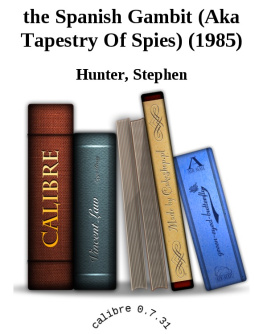
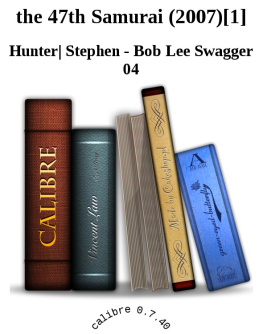
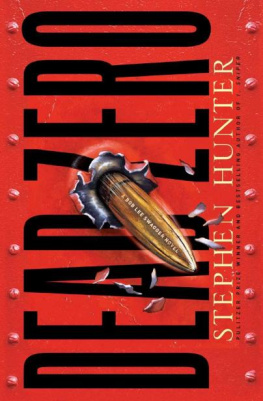
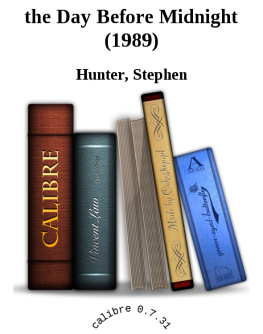
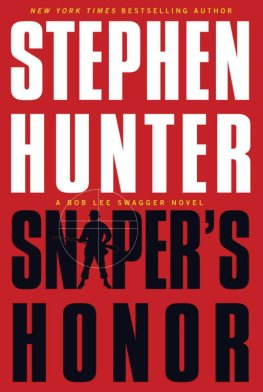
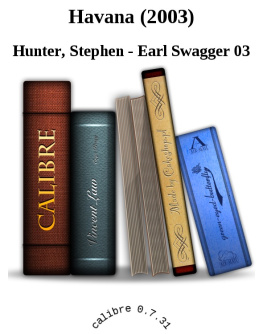
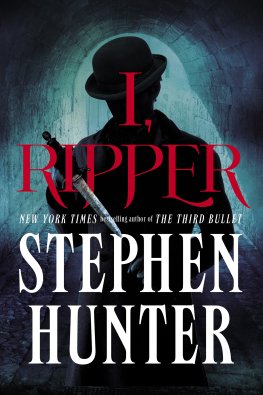


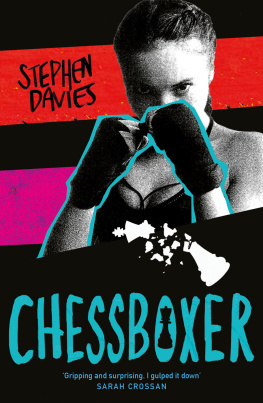
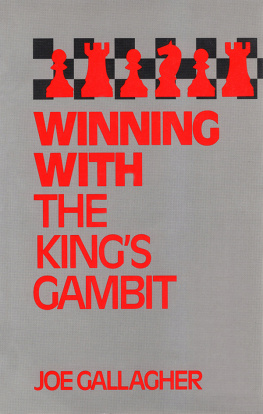
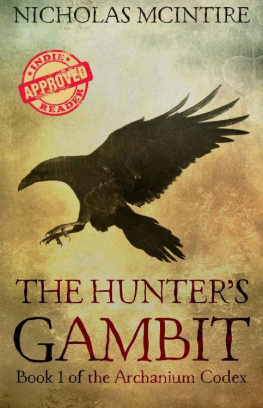
![Ronald R Koegler - Benitos gambit : [a novel]](/uploads/posts/book/63600/thumbs/ronald-r-koegler-benito-s-gambit-a-novel.jpg)
